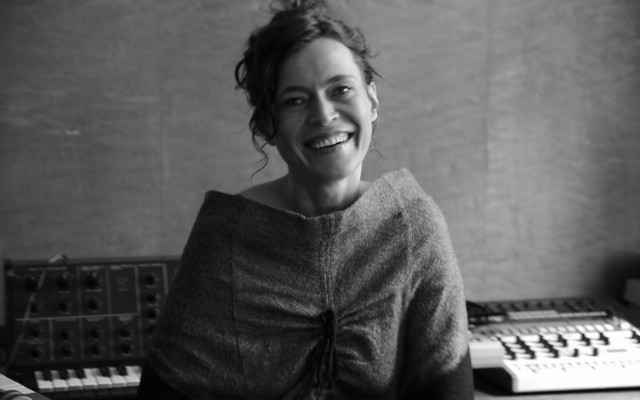Seven // Electric Indigo

There have been several facets to the career of Susanne Kirchmayr, aka Electric Indigo. Beginning her work as a DJ in the early 1990s, the Austrian born producer worked at the iconic Hardwax store in Berlin, delivering a number of her own thundering 4/4 warehouse jams at the same time. In later years, Kirchmayr's style has diversified. She has worked on sound installations and theatre based projects for example, receiving the 'Outstanding Artist Award' from the Austrian Federal Ministry for Education, Arts and Culture in 2012. Her most recent 12", the HET released 'Seven' EP, sees a meeting of these two worlds, treading a line between the dancefloor and the avante-garde.
The EP's opener 'sept' defines this best; digital bugs, broken glass glitches and pulsing modem tones creating oddball poly-rhythms between Kirchmayr's low-slung woodblocks and penetrating kicks. The track is beautifully understated - its sauntering, velvet grooves lending impact in place of exaggerated bass weight or over-the-top percussive climaxes.
Kirchmayr's second original, 'siete', recluses into the shadows. Industrial blasts of sub feel oddly cleansing in their forcefulness, echoing between teeming digital abstractions and discordant metallic swells. Gentle patters of timpani give the piece an almost neoclassical feel, working to something which can only be described as an anti-drop; Kirchmayr drops out the track's surrounding textures, leaving you in isolation with hollow chimes and resounding low-end.
On the flipside we are treated to two remixes of the EP's opener, one from Spanish producer Héctor Sandoval aka Tensal, and the other from label founder Hagen Richter. Sandoval's version recasts the original into a trembling mass of bass weight and tightly clustered percussion, barely breaking formation across its six minute duration. Kirchmayr's granular manipulations are stretched to create an agonizing build in the track's center, yet Sandoval stays true to the original's restrained appeal. Holding back from a high-impact drop, the original components are handled with respect and a light touch.
Hagen Richter turns in a slightly more dramatic re-imagining, introducing harshly phasing snares and a pointed bassline amongst hisses of static and percussive flourishes.
Kirchmayr's release makes up only the second from the Berlin based HET, despite the short catalogue however, the label is already showing a strong propensity for brooding, sound-design heavy techno, with the sharp edges left in. We look forward to seeing how the project develops.
- Published
- Sep 15, 2016
- Credits
- Words by Theo Darton-Moore
